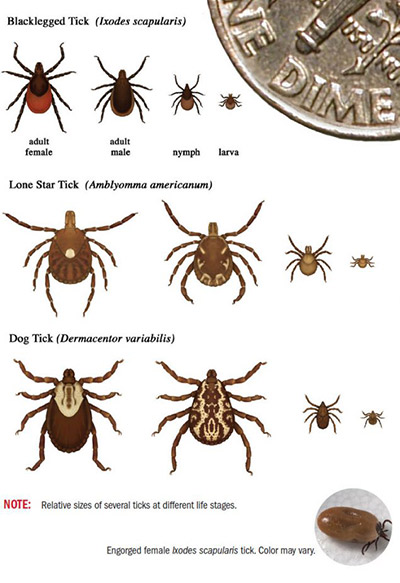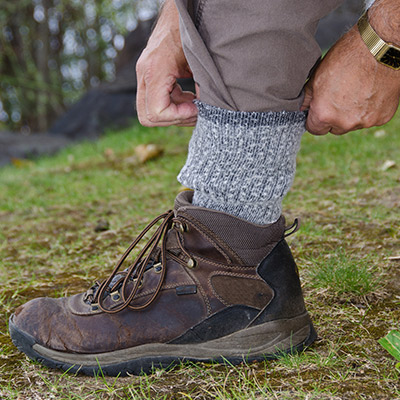Elachee’s Guide to Tick Facts and Prevention in the Outdoors
by Kristin Love
It’s summertime, the opportunity for folks all around Georgia to reconnect with the outdoors whether that means wildflower viewing, water escapades, hiking far and wide, and so much more! However, an unwanted guest into many backyards and favorite outdoor locales is active during these times as well, the dreaded tick. Keep reading below on some tips and tricks to prevent these critters from cramping your outdoor adventures this summer.
General Facts
- Ticks are a group of ectoparasitic arachnids.
- Ticks feed on the blood of vertebrates including mammals (that’s us!), birds, reptiles, and amphibians.
- Ticks feed on vertebrate blood before leaving the host, moulting, and then finding a different host.
- Adult female ticks need a blood meal before they can reproduce.
Georgia Facts

- Georgia is home to 21 species of ticks, only of which 4 species feed on humans.
- Only around 1-2% of one species of Georgia ticks is found to be infected with pathogen/disease, but all of the ticks shown in the image are capable of transferring blood-borne pathogens if infected.
- Georgia tick season is during warm weather, typically April-October.
- Attached ticks do not feed within the first 24-48 hours they are attached and do not typically transmit disease causing organisms during this time.
Tick Prevention
- Stay on marked trails and avoid brushing up against vegetation. Ticks do not like sunny, dry environments or short vegetation, so keeping to marked trails reduces their presence. This also means to avoid keeping high grass near your residence during tick season.
- Wear long pants and when possible tuck your pant legs into your socks and your shirt under your belt. This will keep free flowing fabric from allowing ticks to access skin areas.
- Wear a hat or any other head covering to prevent ticks’ access from overhead limbs/leaves.
- Use a repellant containing DEET on your skin and clothing, which typically lasts several hours to repel ticks. Use an aerosol containing Permethrin ONLY on your clothing (not safe to use directly on skin) to repel and kill ticks.
- Check your entire body for ticks both before and after all outdoor activities. Ticks can attach themselves to any part of your body, so make sure to check the hair and scalp, inside the ears, under arms and behind knees.
- “Hello Mother, hello Father! Fleas, ticks, mosquitos… really bother!” As many people will remember, the most famous K9 Advantix commercial aired in 2003 introducing tv viewers everywhere to a lucky pup at summer camp. Ticks often come in contact with humans via travel from outdoor/indoor pets. Make sure to routinely check your pet for ticks and administer regular flea and tick prevention medication as recommended by your veterinarian.

Tick Removal
- If you are bitten:
a. DO gently remove the tick with fine forceps (tweezers) by grasping the tick as close to the skin as possible.
b. DO NOT apply a lit match or Vaseline product to the tick while attached to you; this may cause it to regurgitate. If the tick regurgitates, this could infect you with a tick-borne pathogen. - Ways to dispose of a tick include drowning it in rubbing alcohol, suffocating it between two layers of tape or flushing it down the toilet. The first two options allow you to keep the tick in case any symptoms were to arise, and you would like to send the tick for medical pathogen testing.
While there are a few challenges to the outdoors during summer months, proper preparation and prevention can help you enjoy wild spaces while mitigating those risks. These skills can range from Snake ID and awareness, preventing dehydration by packing correctly for your adventures, and paying close attention to your map, no matter where you are exploring.
Click here for more information about the 12.26 miles of hiking trails found in Chicopee Woods.
Contact us at Elachee@elachee.org if you have any additional questions about how best to stay safe in the outdoors.
